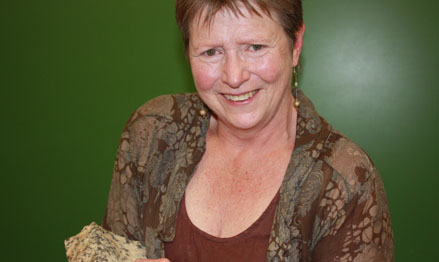Latest News Archive
Please select Category, Year, and then Month to display items
03 January 2023
|
Story Lacea Loader
|
Photo Evert Kleynhans
 Dr Dolf van Niekerk.
Dr Dolf van Niekerk.
The University of the Free State (UFS) would like to express its condolences to the family and friends of South African author, Dr Dolf van Niekerk, on his passing.
Dr Van Niekerk, the recipient of an
honorary doctorate from the UFS, passed away on 31 December 2022. The UFS awarded a Doctor of Letters to Dr Dolf van Niekerk during its April 2021 graduation ceremony.
Dr Van Niekerk was a celebrated author who also achieved fame as a dramatist and radio presenter. An alumnus of the UFS, he received a BA degree from the university cum laude in 1949. He also played a role in academia and was an emeritus professor at the University of Pretoria until his retirement in 1994. His work includes 27 books in philosophy, poetry, fiction, drama, and memoirs, for which he has received numerous awards. These include the
Eugene Marais Prize, the MER Prize, and the Scheepers Award for Youth Literature.
“Dr van Niekerk is a Kovsie alumnus with a deep connection to the Free State. He played a significant role in the country’s literary history, and it was an honour for the university to award him with an honorary degree. A wordsmith of note, Dr van Niekerk’s contributions to South African literature, radio, and stage will live on," says
Prof Francis Petersen, Rector and Vice-Chancellor.
Prof Tredoux turns theories regarding the formation of metals on its head
2013-09-17
|
 |
|
Prof Marian Tredoux
17 September 2013 |
The latest research conducted by Prof Marian Tredoux of the Department of Geology, in collaboration with her research assistant Bianca Kennedy and their colleagues in Germany, placed established theories regarding how minerals of the platinum-group of elements are formed, under close scrutiny.
The article on this research of which Prof Tredoux is a co-author – ‘Noble metal nanoclusters and nanoparticles precede mineral formation in magmatic sulphide melts’ – was published in Nature Communications on 6 September 2013. It is an online journal for research of the highest quality in the fields of biological, physical and chemical sciences.
This study found that atoms of platinum and arsenic create nanoclusters, long before the mineral sperrylite can crystallise. Thus, the platinum does not occur as a primary sulphur compound. The research was conducted at the Steinmann Institute of the University of Bonn, Germany, as well as here in Bloemfontein.
Monetary support from Inkaba yeAfrica – a German-South African multidisciplinary and intercultural Earth Science collaborative of the National Research Foundation (NRF) – made this research possible. Studies are now also being conducted on other metals in the precious metal group, specifically palladium, rhodium and ruthenium.
The discovery of the nanoclusters and the combination with arsenic can have far-reaching consequences for the platinum mine industry, if it can be utilised to recover a greater amount of platinum ore and therefore less wastage ending up in mine dumps. This will signify optimal mining of a scarce and valuable metal, one of South Africa’s most important export products.
For Prof Tredoux, the research results also prove thoughts she already had some twenty years ago around the forming of platinum minerals. “Researchers laughed in my face, but the evidence had to wait for the development of technology to prove it.” Young researchers were very excited at recent congresses about the findings, since the new models can bring new insights.
“Chemistry researchers have been talking about platinum element clusters in watery environments for quite a while, but it was thought that these would not appear in magmas (molten rock) due to the high temperatures (>1 000 degrees celsius).”
Prof Tredoux has already delivered lectures at congresses in Scotland, Hungary, Sweden and Italy on this research.
Read the article at: http://www.nature.com/ncomms/2013/130906/ncomms3405/full/ncomms3405.html